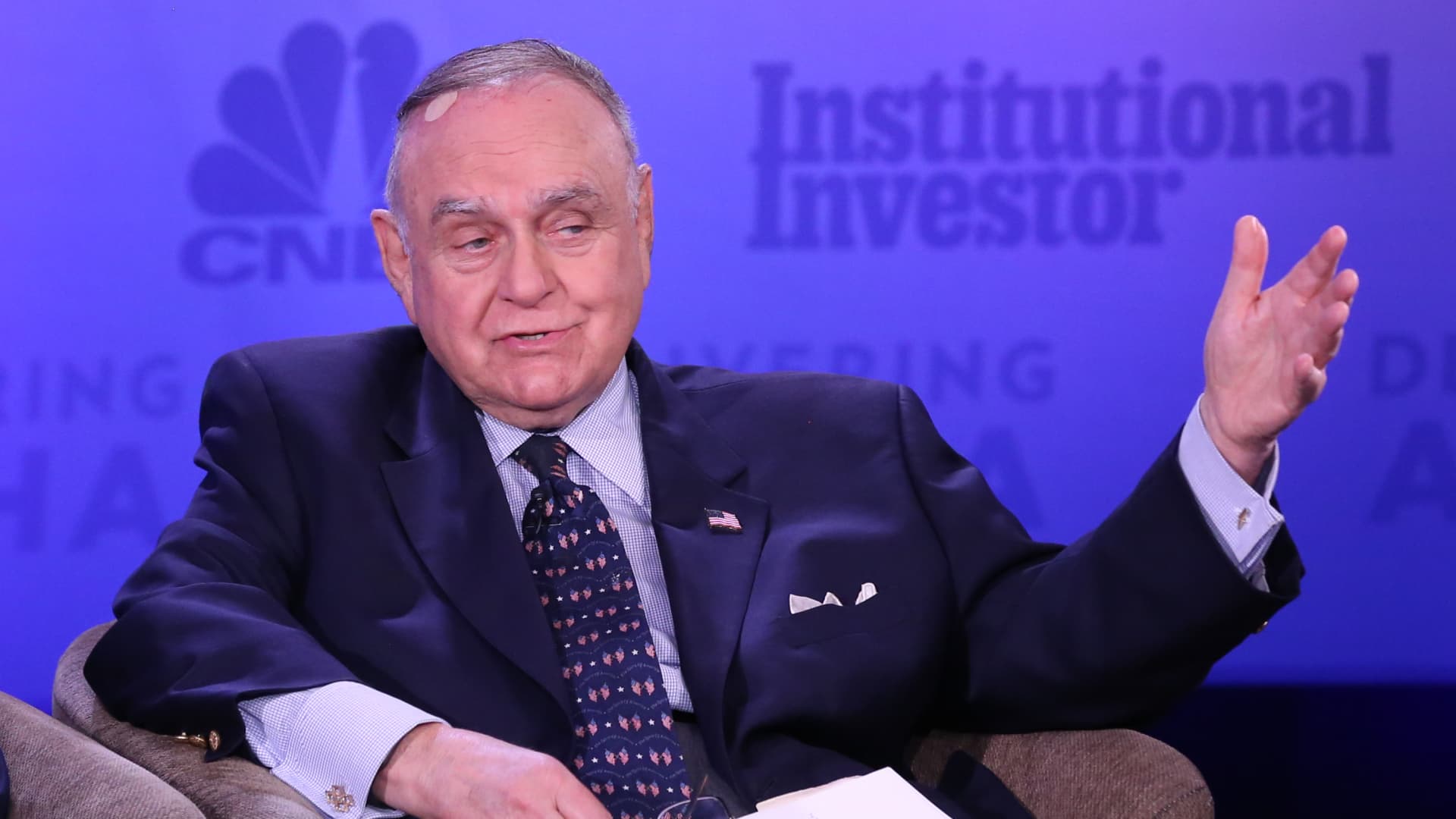NATO members just committed to hike defense spending – and these companies could reap the rewards

With NATO members committing to a much higher defense spending target, certain companies are expected to see huge boosts to their bottom lines – particularly those headquartered in Europe. NATO announced at its annual summit last week that its members had agreed to drastically ramp up defense spending, with the majority of its 32 member states committing to spend 5% of gross domestic product on defense by 2035. Of that figure, at least 3.5% is set to be spent on “pure defense,” while the remainder can be spent on security and “critical infrastructure” that underpins defense capabilities. António Alvarenga, a professor of strategy and entrepreneurship at Portugal’s Nova School of Business and Economics, said spending hikes would see governments channeling hundreds of billions of euros into military capabilities. “Certain sectors and firms are poised to capture windfall gains, ranging from traditional platforms like armored vehicles and naval vessels to emerging domains such as cybersecurity and infrastructure modernization,” he said in an email. CNBC spoke to market watchers about where the money could be directed as NATO countries – the majority of whom are also members of the EU, which has itself pledged to mobilize hundreds of billions of euros for defense spending – allocate more capital to national security. Rheinmetall According to Alvarenga, Germany’s Rheinmetall is well-positioned to benefit from an inevitable European investment in land and air systems. Rheinmetall is expecting its sales to jump by up to 30% this year, with the company reporting a 73% year-on-year sales jump in its defense unit in the first quarter of 2025. So far this year, Rheinmetall’s shares have surged more than 180% higher. RHM-DE YTD line Rheinmetall share price Analysts are currently expecting the company’s full-year revenues to grow by 30% this year, according to LSEG data. “Rheinmetall, already retooling automotive plants in Berlin and Neuss for turreted vehicles and ammunition production, stands to benefit from massive orders of main battle tanks, self-propelled artillery, and high-velocity projectiles,” Alvarenga said. Airbus, BAE Systems, Leonardo European aircraft manufacturers like Airbus , Dassault Aviation , BAE Systems , Saab , and Leonardo are likely to secure contracts for next-generation fighter jet upgrades, unmanned aerial systems, and pilot training simulators, according to Alvarenga. “As nations seek to replace aging fleets, procurement of dozens of multirole fighters could drive hundred-billion revenues over the next decade,” he told CNBC. Linus Terhorst, a research analyst at U.K. defense and security thinktank the Royal United Services Institute, told CNBC that European NATO members were likely to be eyeing investments in integrated air and missile defense, aerial refueling capabilities, deep precision strike systems, and improving infrastructure such as railways and bridges to ensure military hardware like tanks can be transported efficiently. When it comes to the companies that could capture some of that spending, Terhorst pointed out that in Europe there is a “very limited landscape of producers of some of these systems.” “So you’re looking at only a handful of companies that would be, for example, capable of delivering deep strike precision capability,” he told CNBC on a call. “Namely, that would be something like MBDA.” MBDA, a joint venture between France’s Airbus, Britain’s BAE Systems and Italy’s Leonardo, manufactures missiles. “The spending increases are so significant … I think there’s going to be investment across all the capability areas,” Terhorst said. “And therefore, across the various defense sectors, from land, air to sea, we’re going to see significant spending with the big primes in Europe being very likely to benefit from that.” In a note on Friday, Metzler analyst Stephan Bauer described Airbus as “one of our most preferred stocks in our coverage universe,” giving the company a “buy” rating and marginally increasing its price target to 198 euros ($232) – a premium of around 11% on current prices. “Besides European defence stocks, we think it is rather difficult to find an industrial company that offers an earnings growth and FCF profile as exciting as that of Airbus,” they said. Rolls-Royce Nova’s Alvarenga agreed that European governments would also pour money into bolstering the region’s maritime forces, especially in frigates, corvettes, and support vessels. There is evidence that some of these investments are already happening. Last week, for example, Italy’s Fincantieri landed a 700-million-euro ($820 million) contract for the construction of two multipurpose contract ships to join the Italian navy’s fleet. “These shipbuilding programs will not only employ thousands of skilled workers but also generate demand for steel, marine electronics, and propulsion systems; suppliers such as Wärtsilä and Rolls-Royce (marine division) may enjoy spillover benefits,” Alvarenga said. Rolls-Royce is already looking attractive to some market watchers as it looks poised to capture profit from another growing pocket of the European market. Earlier this month, it was announced that Rolls-Royce had been selected to build the U.K.’s first small modular nuclear reactor. After the announcement, Deutsche Bank hiked its price target for the British aerospace firm by 8.7%, saying the nuclear contract boosted the mid-term outlook for the company. “We estimate that the UK SMR programme will contribute 16p to the share price of Rolls-Royce, and there is potential for more SMR orders in the Czech Republic, Sweden, and other countries, with the global SMR market projected to be substantial,” the lender’s analysts said in a note at the time. ‘Security-related’ spending winners Nova’s Alvarenga told CNBC that NATO’s “security-related” spending, meanwhile, could encompass everything from cybersecurity to AI platforms. “Thales, a long-standing defence electronics leader, alongside emerging specialists like Aliter Technologies and CybExer, will compete for contracts to harden national networks, develop automated threat-detection suites, and deploy secure cloud infrastructures,” Alvarenga predicted. “On the U.S. side, companies such as Palo Alto Networks and CrowdStrike could expand their footprints in Europe by providing managed detection and response services under newly funded NATO programs.”









